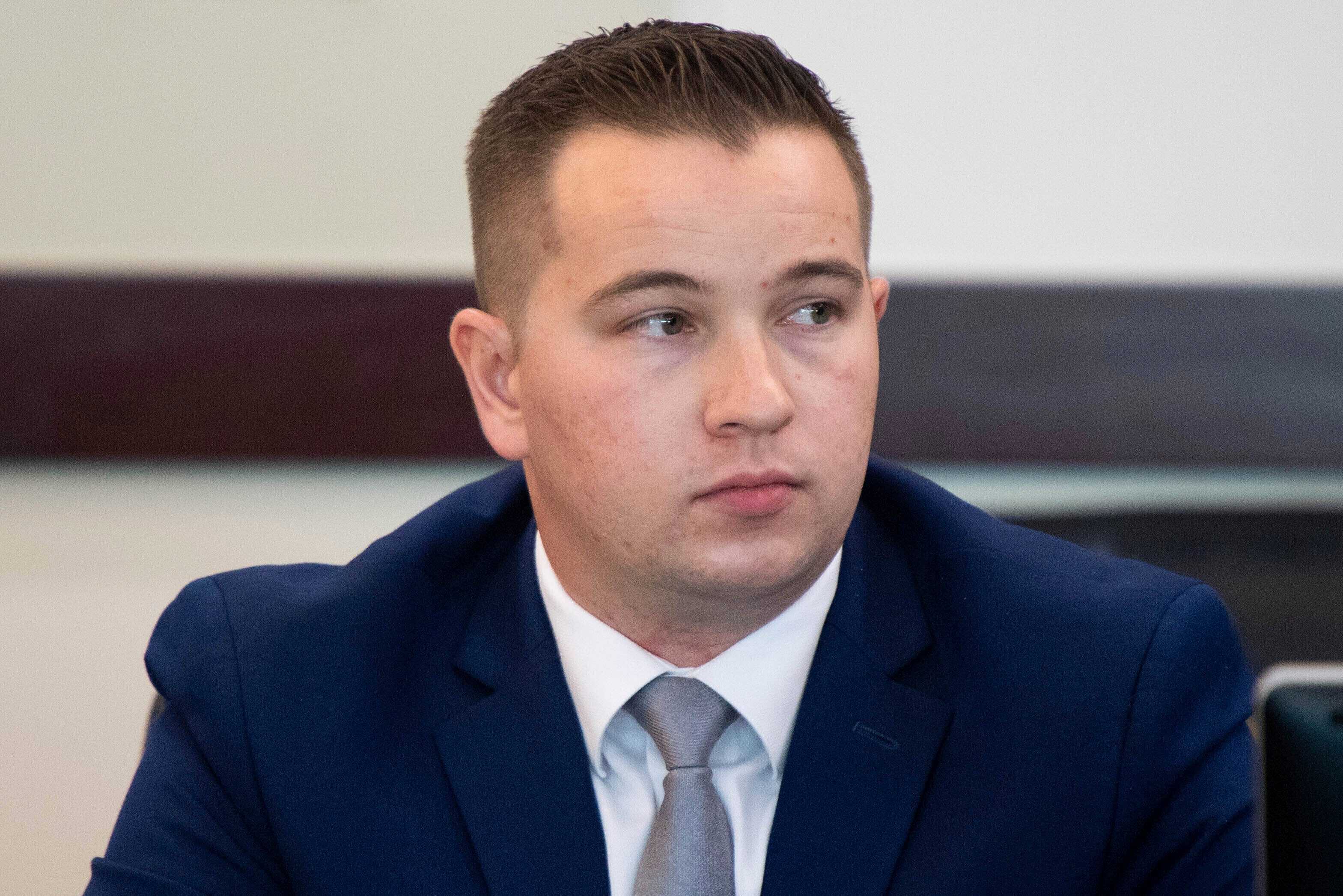DA eyes Floyd case expert for Nashville officer's trial
Prosecutors in Tennessee who are readying for the murder trial of a Nashville police officer may try to call a law enforcement expert witness who served similarly in the case against Derek Chauvin in George Floyd’s death in Minnesota

Prosecutors in Tennessee who are preparing for the first-degree murder trial of a Nashville police officer next month may try to call a law enforcement expert witness who served similarly in the case against Derek Chauvin in George Floyd’s death.
A judge will consider whether to let Jody Stiger, a Los Angeles Police Department sergeant, take the stand to testify against Officer Andrew Delke. The white officer, now 27, is to stand trial next month in the fatal shooting of Daniel Hambrick, a 25-year-old Black man who was shot from behind in July 2018 while fleeing from the officer on foot and while carrying a gun.
Delke's attorney, David Raybin, in a hearing Tuesday accused the prosecutors of wanting to “inject that case into this case” and called it a “bait and switch” to try to introduce Stiger past a scheduling deadline, after seeing him take the stand during the Chauvin trial in April. The Delke trial is scheduled to start July 12.
“Daniel Hambrick is no George Floyd Officer Delke is no Derek Chauvin," Raybin said. "(District Attorney Glenn) Funk says he wants to be transparent. And we can see right through him.”
Deputy District Attorney Roger Moore said that though prosecutors became aware of Stiger from the Chauvin trial, they will make “no mention of George Floyd, (Stiger's) participation in that trial, or anything that would bring that into the purview of the jury." Raybin raised questions about how that case would go unmentioned, since Stiger has only testified in the Chauvin trial.
“We get his testimony from that case and start to ask him questions, the jurors are not stupid, they’re going to know what that is,” Raybin said.
Moore said there is plenty of time until the trial, adding that they “may or may not” actually call Stiger as a witness.
Moore added that he thinks a jury shouldn't need any expert testimony when they see video footage of the shooting. But if there are expert witnesses, Moore said, Stiger should be allowed to testify.
The back-and-forth came as the prosecution and defense made their late-game arguments about what should or shouldn't be revealed to a jury. The jurors will be picked the week before the trial starts.
After Moore said prosecutors don't think experts are needed because of the video available, Raybin argued the opposite. Raybin asked the judge to exclude all video evidence because of additional footage that the defense argued could have shown a key, unseen blip in the chase, but was not retained in the investigation. Moore countered that it's unlikely that the additional, unreviewed video would show anything new.
In the surveillance footage available, there is a blip of a blind spot in the angles seen, a point the defense has focused on. The defense has said the weapon became pointed at Delke during the chase, and prosecutors have cast doubt about that.
Raybin has asked to include evidence about Hambrick's felony criminal record to argue that he ran from Delke because he didn't want to get arrested again and be caught with a gun. Judge Monte Watkins replied, “We don't know why he was running; it could have been any number of reasons.”
“I have some difficulty with allowing prior arrests and warrants to be brought in (as evidence),” Watkins said. “Circumstances may change to such an extent that certain things may come in.”
Delke’s attorneys have argued the officer acted in line with his training and Tennessee law in responding “an armed suspect who ignored repeated orders to drop his gun.” Funk has argued Delke had other alternatives, adding that the officer could have stopped, sought cover and called for help.